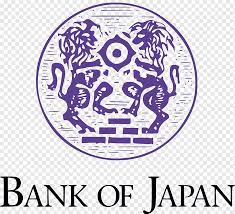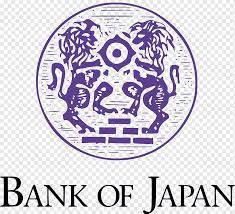
The Bank of Japan fought against a global tide of monetary tightening by central banks fighting to control skyrocketing inflation by maintaining ultra-low interest rates on Thursday and vowed to maintain them there to support economic growth.
The decision was made after the U.S. Federal Reserve announced its third consecutive rate increase of 75 basis points on Wednesday and hinted at additional increases, highlighting its determination to continue fighting inflation.
The policy divergence caused the yen to fall to a new 24-year low and surpass the closely watched level of 145 to the dollar, highlighting the challenge Tokyo faces in trying to support a fragile economy with extremely low rates without hastening an unwelcome yen decline that raises import prices.
A week after officials gave their firmest indication yet that they would intervene in the market if necessary, Japan's top currency diplomat warned that authorities would not tolerate excessive swings in the yen.
Investors are now waiting for BOJ Governor Haruhiko Kuroda to speak at a news conference later today to hear his thoughts on inflation and the recent sharp declines in the value of the yen.
"The BOJ was aware that an announcement like this should surely prompt a weak yen beyond 145 per dollar," said Hiroaki Muto, an economist at Sumitomo Life Insurance. "It's clear that 145 yen wasn't Kuroda's line-in-the-sand."
As was widely predicted, the BOJ maintained its target range of -0.1 per cent for short-term interest rates and 0 per cent for the yield on 10-year government bonds.
Following a board shake-up in July that saw the addition of two new members, one of whom replaced a dovish board member who had consistently opposed maintaining the status quo, the decision was made unanimously. The vote total indicates that the two members are most likely not going to upset current monetary policy decisions.
A pandemic relief loan program was also phased out by the central bank in favor of expanding a liquidity operation that targets a wider range of corporate funding needs.
"The BOJ expects short- and long-term policy interest rates to remain at their present or lower levels," the central bank said in a statement announcing the rate decision, making no change to its dovish guidance.
Following the BOJ announcement, the yen fell to a 24-year low of 145.405 per dollar before abruptly swinging back to around 144.50.
Following the BOJ's announcement of its policy, top currency diplomat Masato Kanda stated that if necessary, the government would intervene in the market to support the yen.
"There are cases where we could conduct stealth intervention," Kanda told reporters. "We haven't intervened yet, but we're ready to take action any time." read more
The BOJ will probably be the last significant monetary authority in the world to have a negative policy rate as central banks around the world begin to reduce stimulus to combat rising inflation.
Core consumer inflation in Japan accelerated to 2.8 per cent in August, exceeding the BOJ's target of 2 per cent for a fifth consecutive month as the price pressure from raw materials and yen declines widened.
However, Kuroda has ruled out the possibility of a near-term withdrawal of stimulus because he believes that wages must increase further for him to sustainably achieve his target of 2 per cent inflation.
In contrast to the government's attempts to halt the yen's decline through verbal threats of yen-buying intervention, Kuroda's dovish message has weakened the yen.
Market participants anticipate that the yen's downward trend will continue, testing the Japanese government's resolve to use the ultimate weapon—currency intervention—by buying yen.
"If it's too rapid a move toward 147 and beyond, I think the intervention layer will come in," said Saktiandi Supaat, regional head of FX research & strategy at Maybank in Singapore. "The verbal warnings have come in, the rate checks have come in, the next level would definitely be intervention."
Market participants anticipate that the yen's downward trend will continue, testing the Japanese government's resolve to use the ultimate weapon—currency intervention—by buying yen. A weak yen was once welcomed for the boost it gives to exports, but as it drives up the price of importing already expensive fuel and raw materials, it has become a headache for Japanese policymakers.
In April through June, the third-largest economy in the world experienced annualized growth of 3.5 per cent, but this recovery has been hampered by a resurgence in COVID-19 infections, supply shortages, and rising raw material prices.
(Source:www.financialpost.com)
The decision was made after the U.S. Federal Reserve announced its third consecutive rate increase of 75 basis points on Wednesday and hinted at additional increases, highlighting its determination to continue fighting inflation.
The policy divergence caused the yen to fall to a new 24-year low and surpass the closely watched level of 145 to the dollar, highlighting the challenge Tokyo faces in trying to support a fragile economy with extremely low rates without hastening an unwelcome yen decline that raises import prices.
A week after officials gave their firmest indication yet that they would intervene in the market if necessary, Japan's top currency diplomat warned that authorities would not tolerate excessive swings in the yen.
Investors are now waiting for BOJ Governor Haruhiko Kuroda to speak at a news conference later today to hear his thoughts on inflation and the recent sharp declines in the value of the yen.
"The BOJ was aware that an announcement like this should surely prompt a weak yen beyond 145 per dollar," said Hiroaki Muto, an economist at Sumitomo Life Insurance. "It's clear that 145 yen wasn't Kuroda's line-in-the-sand."
As was widely predicted, the BOJ maintained its target range of -0.1 per cent for short-term interest rates and 0 per cent for the yield on 10-year government bonds.
Following a board shake-up in July that saw the addition of two new members, one of whom replaced a dovish board member who had consistently opposed maintaining the status quo, the decision was made unanimously. The vote total indicates that the two members are most likely not going to upset current monetary policy decisions.
A pandemic relief loan program was also phased out by the central bank in favor of expanding a liquidity operation that targets a wider range of corporate funding needs.
"The BOJ expects short- and long-term policy interest rates to remain at their present or lower levels," the central bank said in a statement announcing the rate decision, making no change to its dovish guidance.
Following the BOJ announcement, the yen fell to a 24-year low of 145.405 per dollar before abruptly swinging back to around 144.50.
Following the BOJ's announcement of its policy, top currency diplomat Masato Kanda stated that if necessary, the government would intervene in the market to support the yen.
"There are cases where we could conduct stealth intervention," Kanda told reporters. "We haven't intervened yet, but we're ready to take action any time." read more
The BOJ will probably be the last significant monetary authority in the world to have a negative policy rate as central banks around the world begin to reduce stimulus to combat rising inflation.
Core consumer inflation in Japan accelerated to 2.8 per cent in August, exceeding the BOJ's target of 2 per cent for a fifth consecutive month as the price pressure from raw materials and yen declines widened.
However, Kuroda has ruled out the possibility of a near-term withdrawal of stimulus because he believes that wages must increase further for him to sustainably achieve his target of 2 per cent inflation.
In contrast to the government's attempts to halt the yen's decline through verbal threats of yen-buying intervention, Kuroda's dovish message has weakened the yen.
Market participants anticipate that the yen's downward trend will continue, testing the Japanese government's resolve to use the ultimate weapon—currency intervention—by buying yen.
"If it's too rapid a move toward 147 and beyond, I think the intervention layer will come in," said Saktiandi Supaat, regional head of FX research & strategy at Maybank in Singapore. "The verbal warnings have come in, the rate checks have come in, the next level would definitely be intervention."
Market participants anticipate that the yen's downward trend will continue, testing the Japanese government's resolve to use the ultimate weapon—currency intervention—by buying yen. A weak yen was once welcomed for the boost it gives to exports, but as it drives up the price of importing already expensive fuel and raw materials, it has become a headache for Japanese policymakers.
In April through June, the third-largest economy in the world experienced annualized growth of 3.5 per cent, but this recovery has been hampered by a resurgence in COVID-19 infections, supply shortages, and rising raw material prices.
(Source:www.financialpost.com)





